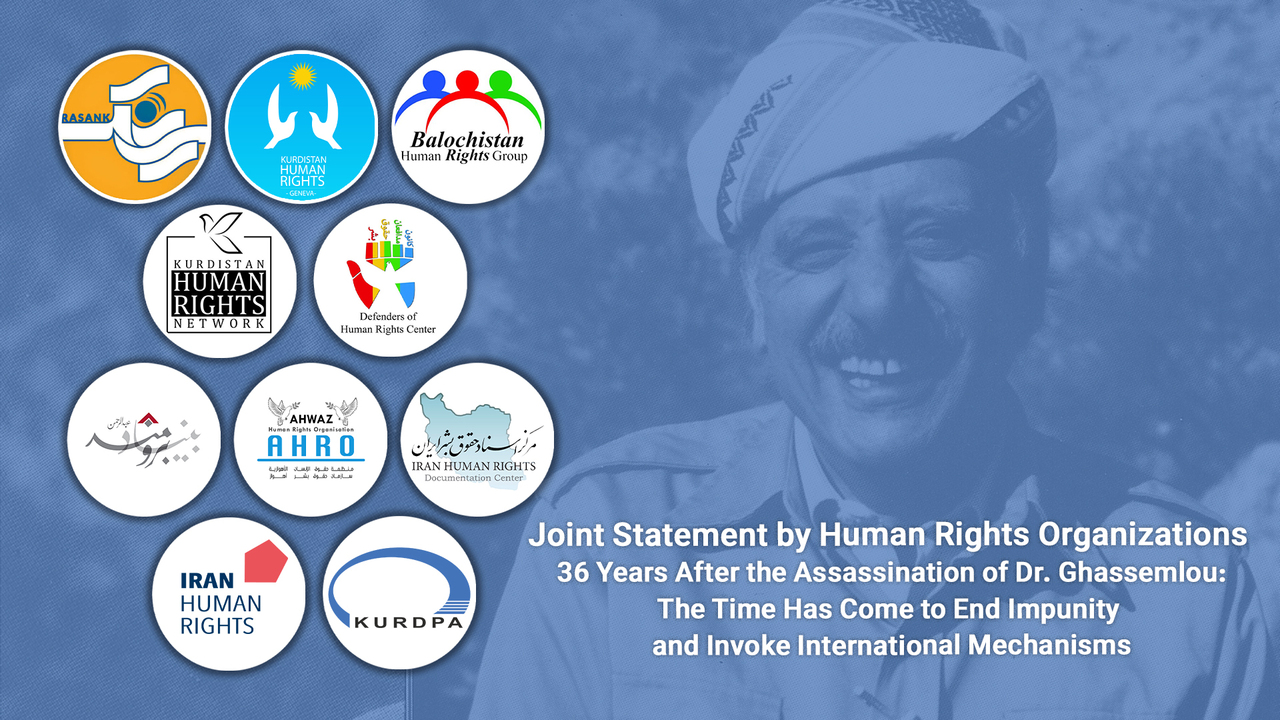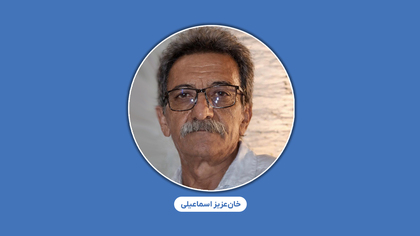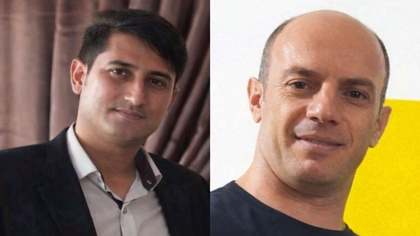Joint Statement by Human Rights Organizations | 36 Years After the Assassination of Dr. Ghassemlou: The Time Has Come to End Impunity and Invoke International Mechanisms

On July 13, 1989, in the heart of Europe, three prominent Kurdish political figures—Dr. Abdulrahman Ghassemlou, Secretary-General of the Democratic Party of Iranian Kurdistan, Abdullah Qaderi Azar, and Fazil Rasoul—were assassinated in Vienna during an official, unarmed negotiation. This was not an accidental act of violence, but a deliberate and systematic political assassination orchestrated by agents of the Islamic Republic of Iran. It formed part of a broader policy aimed at physically eliminating political dissidents abroad, a strategy that has continued in various forms in the decades since.
Thirty-six years on, there has been no legal action taken against the perpetrators or masterminds within the Iranian government. The Austrian state has failed in its legal obligations, and international bodies have not implemented effective measures to halt this cycle of impunity. This ongoing inaction has emboldened the Islamic Republic, which has not only continued orchestrating targeted assassinations on European soil but also institutionalized hostage-taking of dual nationals as a diplomatic bargaining tool disguised as national security prosecutions.
We, the undersigned human rights organizations, commemorate the memory of the victims and call for urgent legal and international action to end this enduring cycle of impunity.
1. The Assassination of Dr. Ghassemlou Constitutes an Extrajudicial Killing and Is Not Subject to a Statute of Limitations
The targeted killing of Dr. Ghassemlou and his colleagues constitutes a clear case of politically motivated extrajudicial execution, directly ordered and carried out by the Iranian state. According to Article 1 of the 1968 UN Convention on the Non-Applicability of Statutory Limitations to War Crimes and Crimes Against Humanity, politically motivated and organized crimes such as this assassination are not subject to limitation periods. Furthermore, under the legal doctrine of "continuing crime," as long as perpetrators benefit from state protection and immunity, the crime remains ongoing and subject to prosecution.
We therefore call upon the Austrian government, European countries, and relevant United Nations institutions to initiate or reopen criminal proceedings based on the principle of non-applicability of statutory limitations, ensuring that those responsible do not escape justice indefinitely.
2. The Islamic Republic of Iran and the Austrian Government Bear Direct Legal, Ethical, and Political Responsibility
The release of suspects, halting of legal proceedings, and failure to enforce arrest warrants constitute gross derelictions of duty with regard to criminal justice and anti-terrorism obligations. Austria’s inaction—especially in the decades following the assassination—paved the way for similar atrocities in France, Germany, Italy, and Switzerland.
Despite overwhelming evidence and court-issued arrest warrants, Austria released the suspects and allowed them to return to Tehran—an explicit violation of its obligations under anti-terrorism treaties, principles against extrajudicial executions, and Articles 6, 13, and 14 of the International Covenant on Civil and Political Rights (ICCPR). On the other hand, the Islamic Republic of Iran has not only refused to accept responsibility but has promoted the perpetrators and appointed them to diplomatic roles.
We therefore demand that the Austrian government reopen the case using its legal authority and fulfill its international responsibilities. The Islamic Republic must be held politically, legally, and through sanctions accountable as the state responsible for this assassination.
3. Silence on Assassination Facilitated Hostage-Taking: The Continuation of Iran’s Transnational Repression Policy
The assassination of Dr. Ghassemlou and his colleagues was part of a broader, systematic pattern of eliminating dissidents abroad. The silence and inaction of the Austrian state and the international community signaled to the Islamic Republic that assassinations on European soil would go unpunished. This emboldened the regime, which expanded its cross-border terrorism and began using hostage diplomacy.
In the years following, Iran carried out additional political assassinations in Europe—such as the Mykonos killings and the murder of Fereydoun Farrokhzad—and initiated a new phase of detaining dual nationals to extract concessions.
We therefore urge the international community to acknowledge this pattern and act to break the chain of state-sponsored political violence through robust accountability mechanisms.
4. We Urge the Immediate Activation of the Following International Mechanisms to Ensure Justice and End Impunity
- Legal and political pressure on Austria to officially reopen the case, execute the arrest warrants, and acknowledge its responsibilities as the host country of this crime.
- Application of the principle of universal jurisdiction by European states to try the suspects in absentia and issue judicial verdicts.
- Targeted Magnitsky sanctions against specific individuals involved in the assassination, including Mohammad-Jafar Sahraroudi, Amir-Mansour Bozorgian, and other operatives.
- Renewal of INTERPOL Red Notices to limit the suspects' international mobility and facilitate their arrest in third countries.
- Engagement of UN mechanisms, including the Special Rapporteur on extrajudicial killings, the Human Rights Council, and the ICCPR Human Rights Committee, to investigate the case and issue formal reports.
We stress that these mechanisms are not only accessible but have been used in comparable cases. Failure to utilize them in this case would amount to legitimizing state-sponsored terrorism and allowing one of the most blatant political crimes on European soil to go unanswered. Human rights organizations, the European Union, and state parties to relevant international conventions are duty-bound to use these tools to end impunity.
The continued silence of European governments, especially Austria, and the failure of international institutions to address this crime sent a dangerous message: that political murder on European soil carries no consequences. This has directly facilitated the Islamic Republic’s unlawful conduct, including abductions, hostage-taking, and transnational repression.
We affirm that justice in this case is only possible through breaking the cycle of impunity, reviving legal proceedings, and holding both states and individuals accountable. Indifference toward the assassination of Ghassemlou is indifference toward the rights of future victims.
We, the undersigned organizations, declare that until the perpetrators and masterminds of this assassination are prosecuted, until the Austrian government admits its failure and takes corrective action, and until the Islamic Republic accepts its legal and political responsibility, this crime will remain ongoing, prosecutable, and a stain on the conscience of international justice.
Signatory Organizations:
Abdorrahman Boroumand Center
Defenders of Human Rights Center
Iran Human Rights Documentation Center
Iran Human Rights (IHRNGO)
Kurdistan Human Rights Association-Geneva (KMMK-G)
Kurdistan Human Rights Network
Balochistan Human Rights Group (BHRG)
Rasank
Ahwaz Human Rights Organisation
Kurdpa Human Rights Organization



